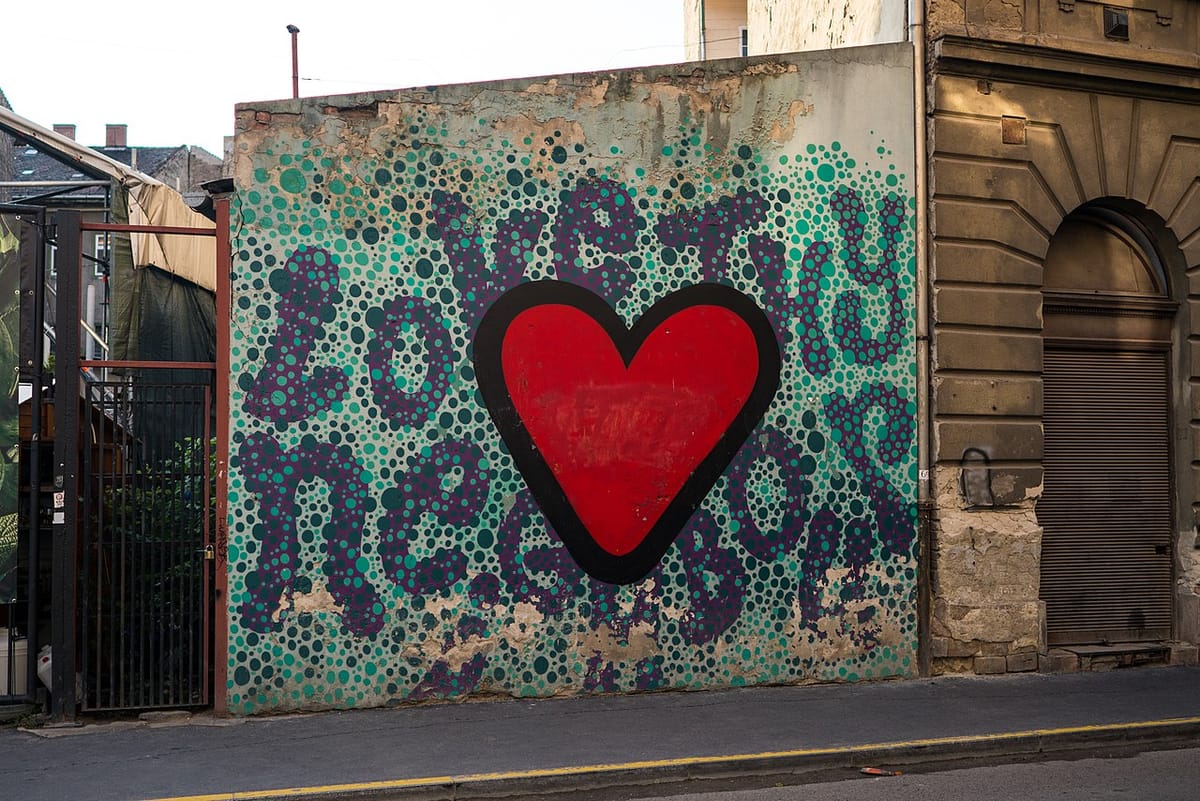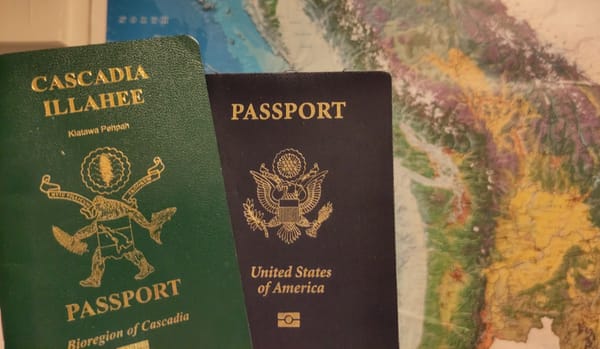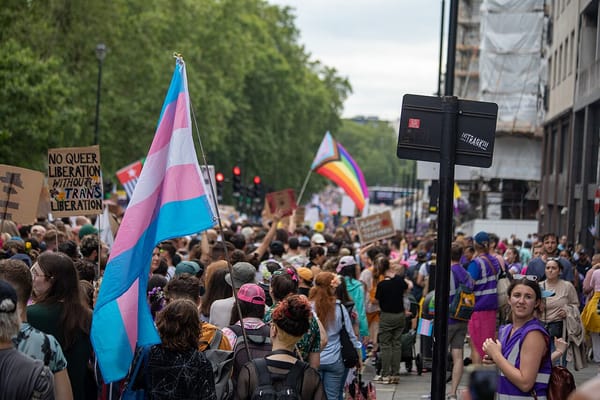In praise of empathy

There's a person who lives on my block in Seattle's Capitol Hill neighborhood who regularly sits on the street corner and yells. It's an angry monologue, disjointed and incoherent, but sincere. She's a middle-aged black woman – and yes, this matters. I'm tolerant, for lord knows what she's seen in her life. And clearly, she's dealing with intense mental health issues.
She never gives off a feeling of danger, and there's a sort of odd, predictable rhythm to her regular litany of complaints. There's been some discussion in our building's co-op board about her (I'll call her Anita), but generally the neighborhood is accepting. Anita does no harm, and everyone tends to keep an eye out for her. She lives in a rent-controlled apartment, so thankfully she has shelter.
If I ever feel annoyed, sitting at my desk and hearing her tirade, I try to remember that we all have our demons. And indeed, these times seem to demand raw, passionate screaming now and then.
One day not long ago, I was walking home and having a heated text exchange with my partner. What we were arguing about is irrelevant, one of those countless passionate dust-ups that are part of a long term relationship. I was head-down tapping on my phone and then started walking to my apartment. But failing to look up, my forehead crashed into the branch of a brightly blossoming cherry tree.
I stumbled back in shock, reached for my head and saw a bit of blood on my finger. It wasn't much, but I was a bit dazed – and mostly annoyed with myself. As I ducked under the branch and started to walk home, someone said, "Are you alright?"
Grateful but embarrassed, I said that I was fine and looking up I saw that it was Anita who was checking in on me.
My heart did a double-take. I stammered something I don't remember and Anita looked at me with concern. She told me about how she'd once hit her head after getting of a bus, and that head injuries can be serious. "You should go to the hospital," she said.
I thanked her profusely and assured her it was just a tiny cut. (But she's right, you should treat a head injuries seriously.) Her look of deep worry shook me a bit, and so I told her I would keep an eye on things and go to urgent care if I felt dizzy. I thanked her again and walked home.
Once inside, I'll confess, I wept a bit. Anita, who has clearly gone through a lot and has deep trauma, took the time to check in on me. I was humbled and moved.
A week or so later, I saw Anita and said hi. I showed her that I was healing and doing fine. She wasn't convinced, and told a long, rambling story about another time she'd been injured. I listened to it all and introduced myself and asked about her. We now had a connection, and I was grateful.
A week after that, as I was headed out for a morning run, there was an incident on our block. A woman sitting a bench on the sidewalk was being attended to by paramedics. The police were there too – perhaps it was a domestic violence incident. Anita was standing half a block away from the police and yelling a stream of invective at them. There was tension in the air, and several residents of the block were watching the scene anxiously.
I started to head out for my run, and then I turned around.
Anita had looked out for me, and I knew I had to look out for her. I walked over to her. She was in a fury, verbally lashing out at the police, spit flying from her lips as she let out a storm of complaints. My concern was that the cops would suddenly think Anita's mental health crisis demanded their intervention. For the moment they were content to ignore her.
I approached her and started to speak. Not recognizing me, Anita raised a finger as if to say "not now." I said, "Hey there. I'm Andy, that guy who hit his head."
She stopped and looked me in straight in the eyes. "How are you?" she said.
I told her I was fine. I told her I was worried about her.
"Oh, I'm fine. This is just my job."
As someone who writes police accountability journalism, I could empathize. I told her that I wanted to make sure she was okay, and that she didn't get into a conflict with the police. I said that I'd been deeply touched when she checked in on me and that we all needed to look out for one another.
"I'll be ok," she said. We hugged each other for a long time. Then I went for my run.
Anita and I continue to say hi and check in on each other on our block. I'll listen if she goes into a rambling monologue, but at a certain point I politely tell her I need to get to work and she smiles and sends me on my way.
I think a lot about how so many fatal incidents involving police begin as a mental health crisis. I've been thinking about how my city's government treats people without shelter as a problem to be swept elsewhere. I think about how easy it is for people on the margins to be evicted and end up on the streets.
And I think about how, early in the Trump administration, an email was sent to staff at NOAA giving them a list of words that were to be avoided in documents going forward. One of the words on the list was empathy.
This is how far we've descended. That a concept as innocuous and fundamental to being a kind human being is forbidden. When did empathy – a word that was coined in the twentieth century, and describes the process of trying to imagine what another person's experience is – when did this become political?
Anita had empathy – and as a result, care for me. And it her concern in turn reminded me to connect with her and return that empathy and care. If our leaders reject such a basic concept of human decency, how can we fail to resist them and work for their removal?
If we take care of each other on our block, perhaps then we can move on to taking care of each other in our neighborhood. And they maybe in our city. Can we do that at an even larger scale? Can we empathize with an entire people subjected to suffering and genocide, or fly to a foreign dictatorship to seek out one stranger we've never met and work to end his unjust imprisonment?
I think we can.
--Andrew Engelson





